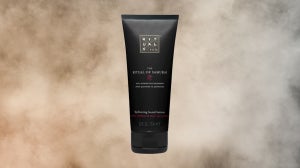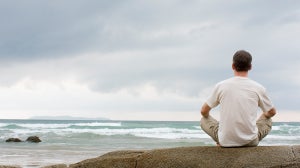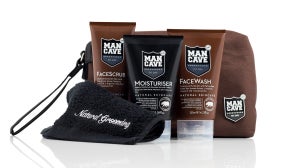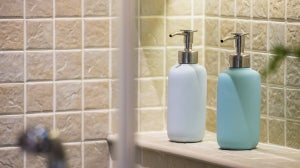
Most of us are familiar with the advice that hair should never be washed on consecutive days. The reasoning behind this ranges from it resulting in increased oil-production, to it causing weaker, more brittle hair that is prone to breakages and hair fall. Another argument which commonly arises in support of the less-is-more approach to hair washing is that shampooing strips away the beneficial, nutrient-rich natural oils produced by the scalp.
Advocates of washing hair less frequently may recommend dry-shampooing, wet rinsing without shampoo, thoroughly combing or brushing hair, or simply leaving it in its natural state on non-washing days. Taking this even further, at the extreme end of the spectrum there are those who reject shampoo altogether. The ‘no-poo’ movement sees its followers avoid washing hair wherever possible, using only natural cleaning agents such as baking soda or apple cider vinegar solutions if they do.
Yet in a recent article, Trichologist and Hair Care expert Anabel Kingsley made the claim that most people can wash their hair every day, and that not only is this ok, but for many it would be beneficial. So where does this new and contradictory advice come from? We dissect the claims.
The Argument: Shampoo does not cause hair fall
“Shampooing can be really, really upsetting for people suffering from hair thinning, because when you massage the shampoo into your hair, all of the hairs that were ready to fall come out at once instead of gradually”.
Kingsley also stresses that it is not excess washing, or the process of shampooing itself that causes the hair fall. If we accept this to be true, we’re left with the idea that it’s the psychological association between hair washing and seeing hair fall (which would have happened sooner or later anyway) that causes people to assume one is caused by the other. If you ask us, this is a pretty convincing way of looking at it.
The Argument: You should treat your hair like you treat your skin
“You should think of washing your hair as a skincare regime. After all, your scalp is just skin. It has oil and sweat glands, and with all of the secretions being produced, added to pollution, you don't want it sitting on there for days.”
On the surface, this makes sense, but there are few points to raise here. First of all, yes, the scalp is simply another area of skin. However, as it’s not on display all the time, we naturally treat it differently, and this is important for a number of reasons.
Not washing your face enough may cause blemishes to arise which are visible for all to see – so it makes sense to wash your face frequently. If a blemish arises on your scalp, it’s unlikely that anyone will notice, so controlling for blemishes becomes less of a priority. Given the emphasis placed on looking after facial skin, understandably, people apply more skin care and cosmetic products to that area, which may need to be washed off. In addition, plenty of unavoidable day to day factors such as eating and touching your face contribute to the build-up of dirt and sebum at a faster rate in this area when compared to other areas of the body. For these reasons, it makes perfect sense to wash your face more frequently.
That said, we agree with Anabel’s verdict on greasy hair. If your hair is finer you’ll typically have more follicles and sebaceous glands, producing a greater overall volume of sebum on your scalp. Washing more frequently should definitely be considered if this applies to you. Not only will your hair naturally tend towards looking and feeling greasier, but the transfer of sebum from your hair to your skin will exacerbate many skin issues.

The Argument: it’s not how often you wash your hair but how you treat it that causes damage
“Gentle Washing could be done several times a week or even every day if its gentle enough. If it’s harsh, then even once a week is going to be too much.”
Kurt Stenn, author of “Hair: A human history”, argues that the hair is tough enough to withstand frequent washing without sustaining damage, but only with a gentle shampoo. Shampoos which are used to give a deep, thorough clean before conditioning may be strong enough to cause damage to hair with use that is too frequent. You’ll be able to tell from how your hair feels after use – if your hair feels dry, and lacks volume, then you’ll know it’s not the kind of shampoo you should be using every day.
Another reason why frequent hair washing may be so commonly associated with damaged hair is that with more washing, inevitably, comes more drying. Heat from hairdryers is one of the major causes of hair damage, while rough towel drying can be just as culpable.
If you can see the advantages of washing your hair every day, but you’re afraid of damaging it, it may be worth simply switching your method. Use a gentler shampoo, and lightly towel dry using a dabbing rather than rubbing motion. If you need to use a hairdryer or heat styling, use a heat treatment to protect your hair and minimise damage.
Should you wash your hair every day?
Given the amount of people who swear by intermittent hair-washing, and everyone who manages to look great on hardly any washing at all, Mankind isn’t going to be commanding you to wash your hair every day any time soon. However, we can see the upsides.
Washing every day is simply going to be impractical for many with longer, thicker, or curlier hair. In addition, if you’re using the wrong shampoo and drying it with a hairdryer, it will be genuinely harmful. That said, if your hair is capable of withstanding it, why not wash it every day? Using a gentle shampoo daily will give your hair extra volume, keep grease under control, and have a positive impact on your skin.
Ultimately, it’s up to you to decide how often is too often. And provided you’re taking care of your hair in other ways, there’s no reason not to wash it every day if it works for you.
If you like this content, check out more of our hair care related posts, and keep up to speed with our Grooming Editor content.








